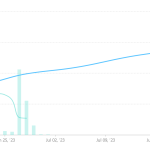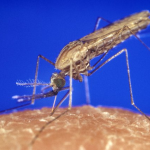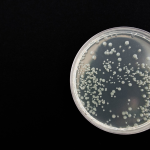There are upticks in early indicators of a COVID surge, including hospitalizations, test positivity, and SARS-CoV-2 concentrations in wastewater. And a new Omicron subvariant is rapidly gaining in prevalence. We need to prepare.
Disease
I’ve been visiting doctors lately, and my blood pressure has been recorded many times. Some days it is 140/80; other days, it is 200/110. Why could that be? And what does it tell us about healthcare and BIG DATA?
Some have decided it's over and heralded the end of the pandemic; others say they are not sure. The answer to this recurring question requires a few definitions and statistical regressions.
Florida, Texas Reporting Locally-Acquired Malaria Cases. (Spoiler Alert: It Isn't Bill Gates' Fault)
The eight cases of locally transmitted malaria recently reported in the U.S. – the first in 20 years – have elicited loony conspiracy theories about the cause. They're bunk.
COVID-19, a respiratory virus, often begins in viruses trapped in our nose and upper respiratory tracts. While universal precautions in healthcare settings require frequent handwashing, enforcing that requirement is lax, and compliance is often low. A new study reports on rhinotillexis, the act of “extracting nasal mucus with one’s finger,” and subsequent mucophagy, the ingestion of said mucus, among healthcare workers in the Netherlands.
An allergy to the sugar galactose-alpha-1,3-galactose “alpha-gal” – which causes an allergy to red meat and is spread by a tick – has “climbed 41%” over four years. To add to our fears, the media reported, “42% of health care providers didn’t know about the syndrome, and another 35% weren’t too confident about how to diagnose and treat it.” Is the meat apocalypse upon us? Have the cows found a way to make us eat less of them and more vegetables?
Roughly 99.5% of people born before 1980 are infected with herpes zoster, yet only 33% will develop its clinical manifestation: shingles. The Institute for Health Metrics and Evaluation estimates that 98% of people in the U.S. have been infected with COVID, but roughly 30% of our population has been symptomatic to the extent that they are registered as “cases.” It's time to discuss the infection enigma - “the puzzling observation that only a small minority of infected people die from infection or even develop clinical disease.”
The drug, Leqembi, does not reverse symptoms. In patients in the early stages of Alzheimer's disease, it slowed cognitive and functional decline somewhat compared with placebo. The FDA’s approval of Leqembi is not the end of the Alzheimer’s journey, but it could be a way station.
A study confined to COVID deaths in Florida and Ohio suggests that the Grim Reaper’s “excess” deaths, when stratified by political party, came for Republicans more often than Democrats.
Discussions of “climate change” or “global warming” tend to focus on increasing temperatures in summer, especially the current run of severe heat waves. The 85-page summary of the Intergovernmental Panel on Climate Change (IPCC) report mentions “winter” only once, the surname of one of the authors, but the adverse health effects of cold winters have long been recognized. Can the health benefits of warmer winters compensate for the damaging effects of hotter summers?
Tori Bowie, a 2016 US Olympian, died from complications of childbirth; Serena Williams experienced a pulmonary embolism after delivery that was initially ignored. According to the World in Data, US maternal mortality per 100,000 live births lies “comfortably” less than in Grenada but more than in Latvia or Puerto Rico. Let’s get behind the headlines, and delve deeper into a “preventable” problem.
It is a palliative care initiative in which clinicians inquire about and implement final wishes for patients who are expected to die imminently. The staff recognize that in their final hours, most people have fears, regrets, and maybe a last, often simple wish.











